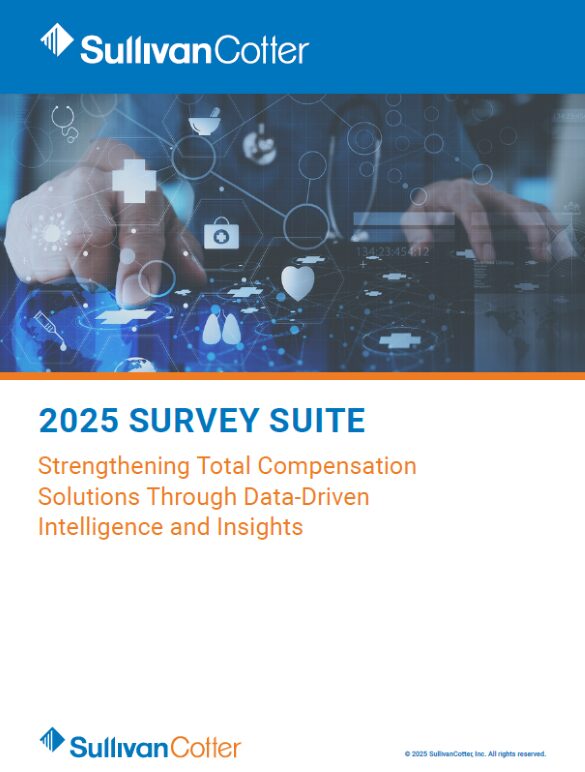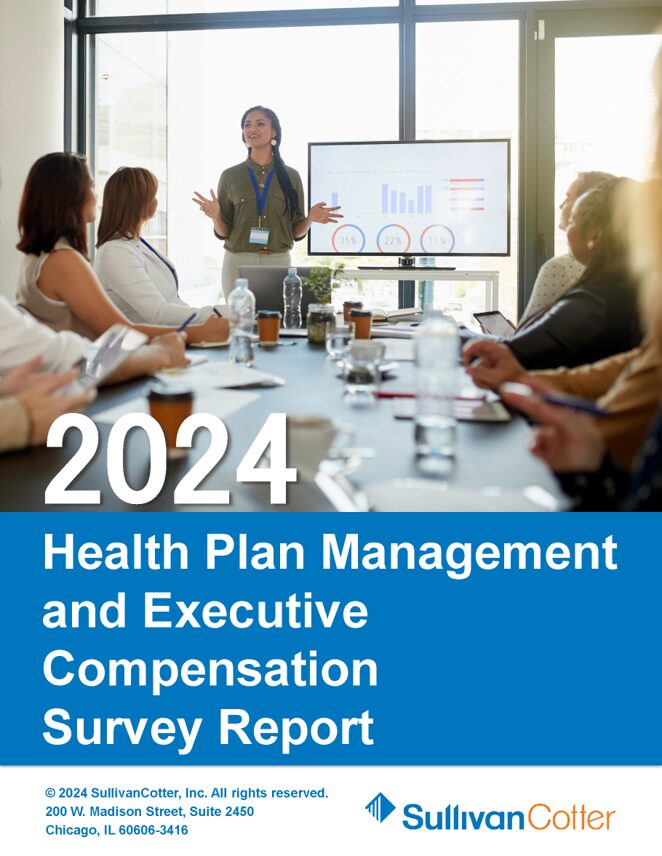Flexible Participant Experience
Log in to the Client Portal to submit data (i.e., APP, benefits, employee, executive, investment and physician) once and qualify for all applicable surveys or delegate survey tasks across your organization to other colleagues
Comprehensive Benchmarking Resources for Health Plans
Our suite of benchmarking resources includes compensation and incentive data for health plans. Gain access to data specific to independent health plans and those owned by health systems.
Enhanced Multiphase Auditing Process
Our participant experience includes an audit process that allows organizations to identify year-over-year discrepancies and areas of concern, contributes to the robustness and integrity of our data and provides greater confidence in report accuracy. If audits are needed, SullivanCotter emails participants when their audits are ready. After which, they may log in to their accounts to clarify and submit feedback via secure communication.
Learn About Our Full Survey Suite
Gaining access to the right data is paramount. SullivanCotter’s proprietary survey data provides the intelligence and insights you’ll need to confidently navigate the compensation journey and make highly-informed decisions.
Survey Highlights
- Data from over 55 participants with more than 800 incumbents
- Base salary, total cash compensation and total direct compensation
- Incentive opportunities, prevalence and payouts
- Data reported by type and membership size
Enhanced Report Delivery
The compensation and pay practices benchmarks are delivered via SullivanCotter’s web-based Benchmarks360™ product suite — providing users with self-serve analytics dashboards for their unique reporting needs.
2025 Health Plan Management and Executive Compensation Survey
2025 Survey Participation Is Closed
Contribute to Gain Participation Privileges
Your participation ensures that your data are part of this valuable resource, providing you with robust, comprehensive information used by organizations across all market segments. In addition, participants receive exclusive, discounted pricing on valuable data and reports and early access to survey results.
Participation in our surveys is made easy through our online data collection tool
Non-health care organizations are welcome to participate in the survey on their client’s behalf; however, they are not eligible to purchase the report at the participant rate. Please call 888.739.7039 or email surveys@sullivancotter.com for pricing.
Survey Samples
Download a sample of the 2024 survey report.
Reduced Pricing for Participants:
- 2025 Survey Participants: $1,050
- 2025 Early Submission Discount: $200 off participant price
- Health Plan Nonparticipants: $4,200
- Non-Health Care Organizations: Please call 888.739.7039 or email surveys@sullivancotter.com for pricing
Key Dates:
Participation opens: January 7, 2025
Deadline for early submission discount: February 25, 2025
Deadline for participation: March 14, 2025
Benchmarks publication: August 2025
Current status: Closed for participation
Questions?
If you have any questions about the survey, please contact our Survey Team by phone at 888.739.7039 or by email at surveys@sullivancotter.com.
Order the 2024 Health Plan Management and Executive Compensation Survey
2024 Survey Costs:
- 2024 Survey Participants: $975
- 2024 Early Submission Discount: $200 off participant price
- Health Care Nonparticipants (organizations directly involved in the delivery of care): $3,900
- Non-Health Care Organizations: Please call 888.739.7039 or email surveys@sullivancotter.com for pricing
Key Dates:
Survey data effective: January 1, 2024.
Questions?
If you have any questions about the survey, please contact our Survey Team by phone at 888.739.7039 or by email at surveys@sullivancotter.com.
Related Resources
Physician Compensation Governance: Best Practices and Common Pitfalls
Robust physician compensation governance structures are fundamental to maintaining compliance. Dive deeper into best practices and common pitfalls from our experts!
INFOGRAPHIC | Lead Smarter: Evaluating Span of Control
Improve your management and leadership structures by getting span of control right! We've compiled the latest data and insights from our Workforce Metrics Benchmark Database.
Executive Compensation Committee: Top 10 Priorities for 2025
Is your executive compensation committee on the right path for 2025? Help them navigate the year ahead with timely insights from our experts!

